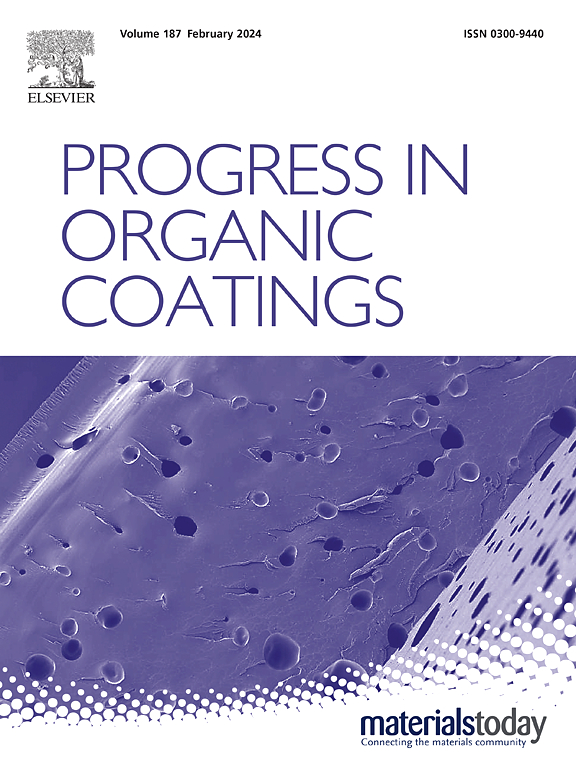Deterioration mechanism of overlaid heavy-duty paint and thermal spray coatings on carbon steel plates in marine atmospheric environments
IF 6.5
2区 材料科学
Q1 CHEMISTRY, APPLIED
引用次数: 0
Abstract
Thermal spray coatings, such as Zn, Zn-15Al, Al, and Al-5Mg, combined with heavy-duty paint, are increasingly used to enhance the corrosion resistance of steel structures. However, the overlaid areas of these coatings, particularly in damaged regions, can become weak points for corrosion initiation. To investigate the deterioration mechanisms at the overlaid zones of heavy-duty paint and thermal spray coatings on carbon steel plates, this study designed atmospheric exposure experiments and employed 3D scanning, electrochemical testing, and scanning electron microscope (SEM) - energy-dispersive X-ray spectrometer (EDX) analysis to systematically assess the degradation of the overlaid coatings in marine atmospheric environments. The results indicate that electrochemical reactions at coating defects drive the blistering and delamination of the overlaid coatings. Zn-based coatings, which provide sacrificial protection, exhibit slower failure progression compared to Al-based coatings, which show blistering due to passivation film formation. These findings provide valuable insights for optimizing thermal spray selection and overlaid coating strategies in marine atmospheric environments.
求助全文
约1分钟内获得全文
求助全文
来源期刊

Progress in Organic Coatings
工程技术-材料科学:膜
CiteScore
11.40
自引率
15.20%
发文量
577
审稿时长
48 days
期刊介绍:
The aim of this international journal is to analyse and publicise the progress and current state of knowledge in the field of organic coatings and related materials. The Editors and the Editorial Board members will solicit both review and research papers from academic and industrial scientists who are actively engaged in research and development or, in the case of review papers, have extensive experience in the subject to be reviewed. Unsolicited manuscripts will be accepted if they meet the journal''s requirements. The journal publishes papers dealing with such subjects as:
• Chemical, physical and technological properties of organic coatings and related materials
• Problems and methods of preparation, manufacture and application of these materials
• Performance, testing and analysis.
 求助内容:
求助内容: 应助结果提醒方式:
应助结果提醒方式:


